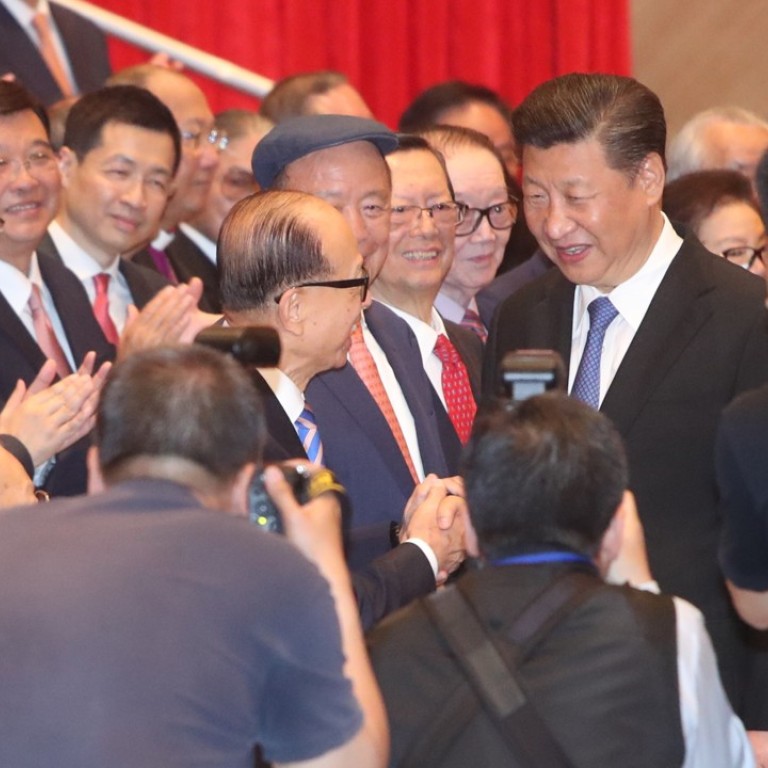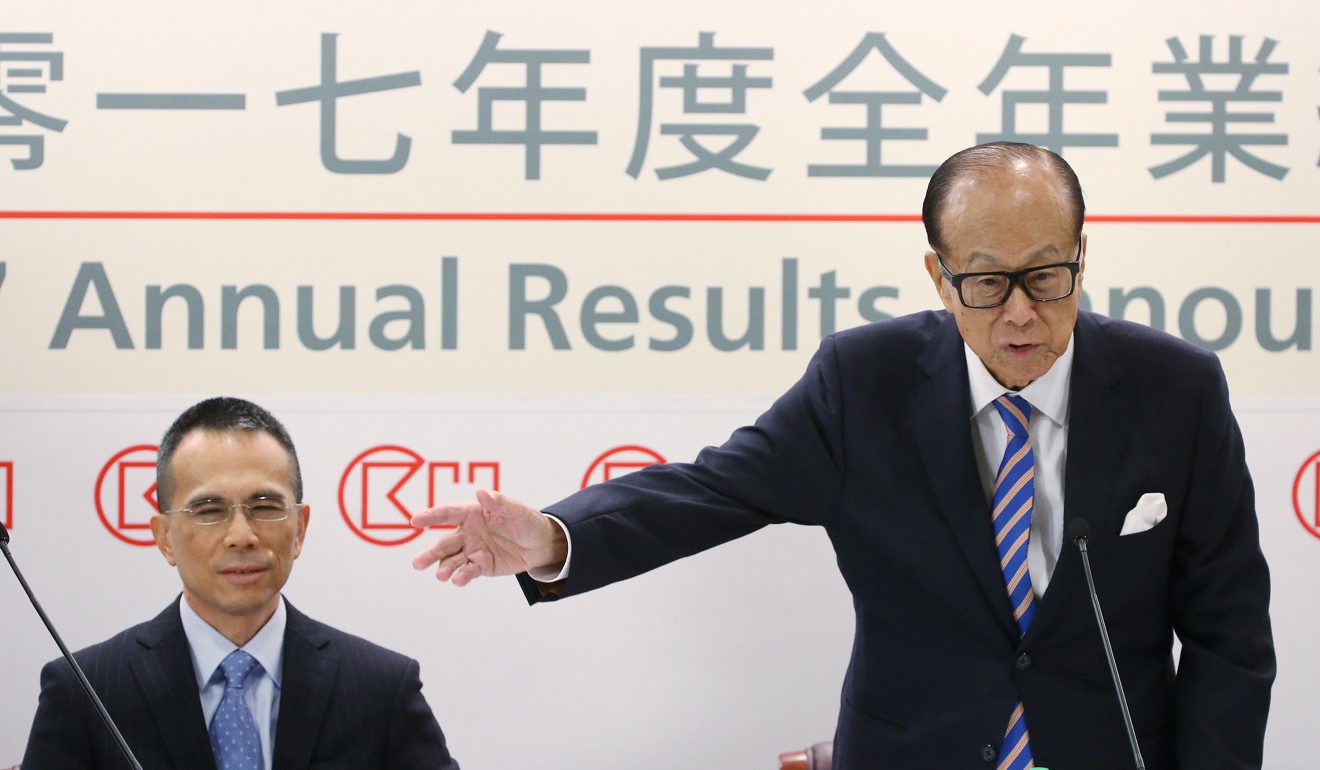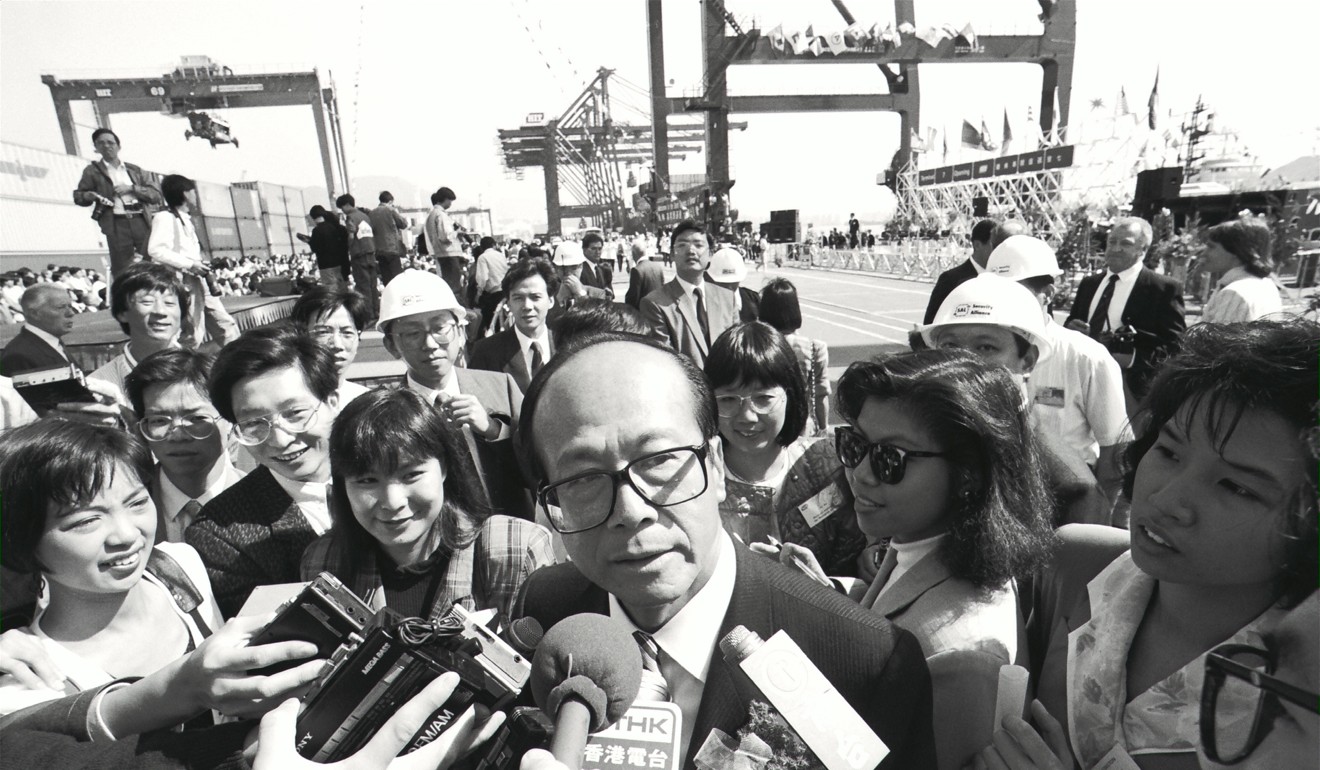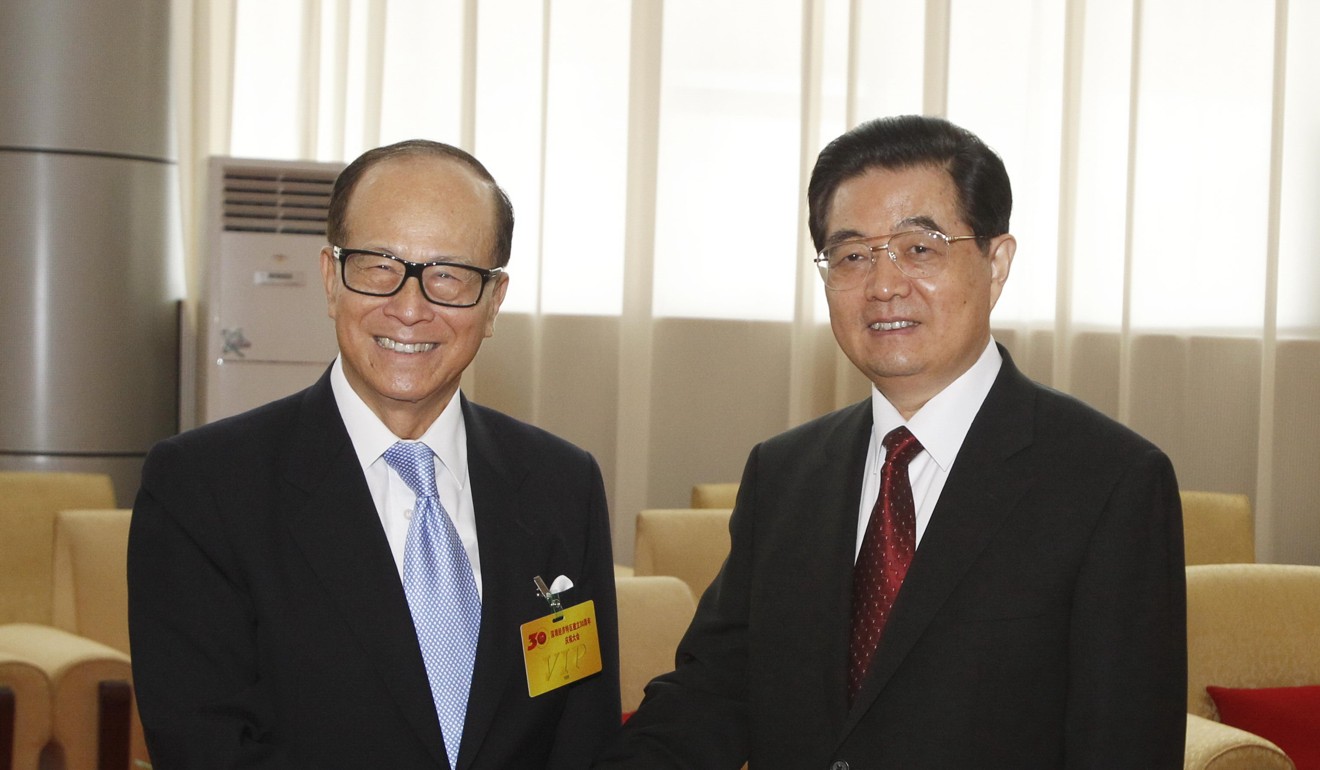
From plastic flowers to property and ports: how Li Ka-shing became a symbol of Hong Kong
The tycoon’s retirement from the global empire he built from scratch marks the end of an era
The retirement of Hong Kong’s richest man, Li Ka-shing, from the helm of the two companies he built up into a global empire, marks the end of the era of the city’s post-war tycoons, largely self-made men whose endeavours helped the former colony evolve from a manufacturing base to a global trade hub.
Li, who turns 90 in July, will hand over the chairmanships of CK Hutchison Holdings and CK Asset Holdings to his elder son, Victor Li Tzar-kuoi. The two firms have telecoms, container ports and real estate interests and a combined market capitalisation of HK$641 billion (US$81.7 billion).
“His retirement is an important watershed. It symbolises the end of the first generation of the tycoon era which set up business after the second world war. They have still been doing business on the old model,” said Professor Joseph Fan of the department of finance at the Chinese University of Hong Kong.

Courted by China’s leaders in the years before and after the return of Hong Kong, Li had run into criticism in Beijing of late after a series of sales of his companies’ assets in mainland China as part of a restructuring of the businesses. This led to speculation that his star had been fading in China’s leadership circles.
In Hong Kong however Li has been held up as a symbol of the entrepreneurial spirit of the city, earning the nickname “Superman” for his deal-making acumen. With an estimated net worth of US$36 billion, he is Hong Kong’s richest man according to Forbes magazine, and the world’s 23rd richest.
His story began very humbly. He left mainland China with his family in the wartime chaos of 1940 and started a plastic flower business in Hong Kong in 1950 when he was 22 years old.
As the business made money he moved into property, building a fortune as real estate prices surged in the city. In 1979, with help from HSBC, Li took control of Hutchison Whampoa, now CK Hutchison, making him the first Chinese to take over a British-backed conglomerate.

The deal paved the way for him to take his empire global, becoming majority shareholder in Calgary-based Husky Oil in 1991, and taking 75 per cent of Felixstowe port in the UK the same year.
His expansion into mainland China stepped up after the late leader Deng Xiaoping’s southern tour in 1992 at the start of China’s opening up, with major investments including Yantian Port and the Beijing Oriental Plaza office, retail and hotel development in the capital. In early 2000, the group’s mainland investments amounted to HK$60 billion.
But in recent years, CK Asset has been trimming those assets, disposing of more than 20 billion yuan (US$3.2 billion) of commercial properties in Shanghai, Beijing and Guangzhou between 2013 and 2015 as part of a sweeping restructuring of the business empire that also included switching its base of incorporation to the Cayman Islands from Hong Kong.
The asset sales drew criticism from China, including in an editorial in the People’s Daily, the official newspaper of the Communist Party, that attacked Li for “abandoning his home market and the motherland” as economic growth slowed and uncertainties loomed. Li dismissed the criticism.
Li still has a close relationship with Beijing, and state leaders are known to maintain channels of communication with him, according to Hong Kong-based China watcher Lau Siu-kai, vice-chairman of The Chinese Association of Hong Kong and Macau Studies, a semi-official think tank.
In July 2010, Li was given a high-profile reception by former president Hu Jintao in Shenzhen, who met Li in person before a ceremony marking the special economic zone’s 30th anniversary.

Last summer, President Xi Jinping visited Hong Kong to commemorate the 20th anniversary of the city’s return to Chinese rule, and during a meeting with about 200 business and political leaders, he shook Li’s hand for about 10 seconds.
Ip Kwok-him, a veteran pro-Beijing politician in Hong Kong and a local deputy to the National People’s Congress, said Li had played an important role in China’s development, but he said he had heard state leaders were holding fewer meetings with tycoons in Hong Kong when they visited the city to avoid potential criticism that they were focusing only on rich people.
Ip said he believed Li’s move to reduce his investments in mainland China was also a factor in the less-frequent meetings.
Additional reporting by Sandy Li, Tony Cheung and Kimmy Chung

